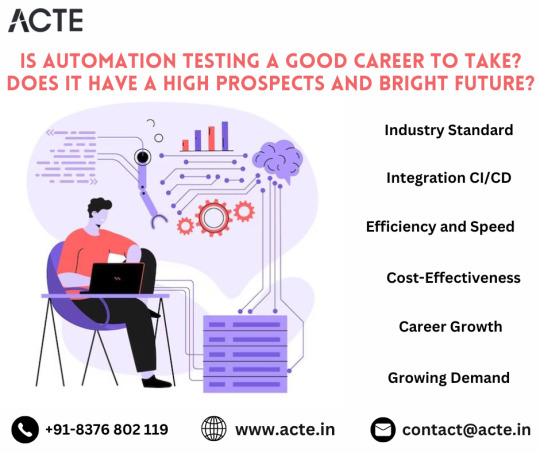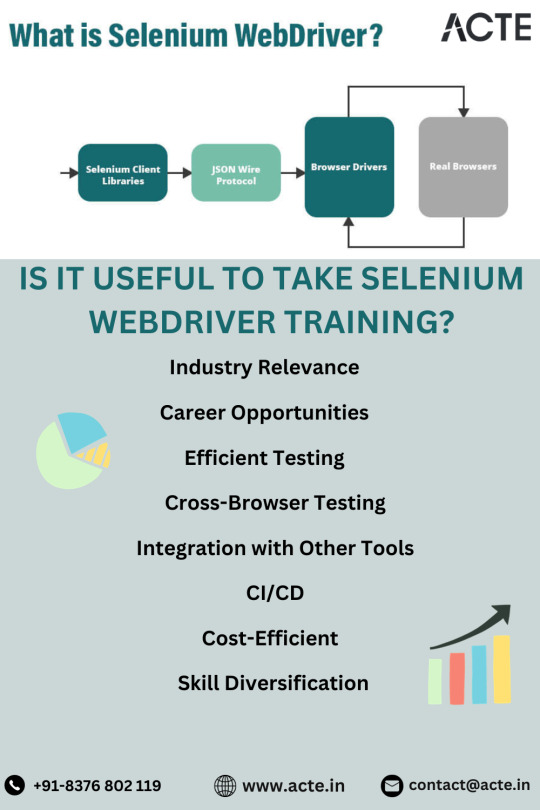#CI/CD Pipeline Showcase
Explore tagged Tumblr posts
Text
How to Demo Your AWS DevOps Skills: A Guide to Impress Employers- OpsNexa!
Discover how to present your AWS DevOps expertise to employers with confidence. This guide covers building impactful projects, How to Demo Your AWS DevOps Skills, showcasing CI/CD pipelines, leveraging automation, and using AWS tools to demonstrate real-world skills and stand out to recruiters.
#AWS DevOps Demo#Showcase DevOps Skills#AWS DevOps Portfolio#DevOps Skills for Interviews#Demonstrate DevOps Experience#CI/CD Pipeline Showcase
0 notes
Text
Top 10 In- Demand Tech Jobs in 2025

Technology is growing faster than ever, and so is the need for skilled professionals in the field. From artificial intelligence to cloud computing, businesses are looking for experts who can keep up with the latest advancements. These tech jobs not only pay well but also offer great career growth and exciting challenges.
In this blog, we’ll look at the top 10 tech jobs that are in high demand today. Whether you’re starting your career or thinking of learning new skills, these jobs can help you plan a bright future in the tech world.
1. AI and Machine Learning Specialists
Artificial Intelligence (AI) and Machine Learning are changing the game by helping machines learn and improve on their own without needing step-by-step instructions. They’re being used in many areas, like chatbots, spotting fraud, and predicting trends.
Key Skills: Python, TensorFlow, PyTorch, data analysis, deep learning, and natural language processing (NLP).
Industries Hiring: Healthcare, finance, retail, and manufacturing.
Career Tip: Keep up with AI and machine learning by working on projects and getting an AI certification. Joining AI hackathons helps you learn and meet others in the field.
2. Data Scientists
Data scientists work with large sets of data to find patterns, trends, and useful insights that help businesses make smart decisions. They play a key role in everything from personalized marketing to predicting health outcomes.
Key Skills: Data visualization, statistical analysis, R, Python, SQL, and data mining.
Industries Hiring: E-commerce, telecommunications, and pharmaceuticals.
Career Tip: Work with real-world data and build a strong portfolio to showcase your skills. Earning certifications in data science tools can help you stand out.
3. Cloud Computing Engineers: These professionals create and manage cloud systems that allow businesses to store data and run apps without needing physical servers, making operations more efficient.
Key Skills: AWS, Azure, Google Cloud Platform (GCP), DevOps, and containerization (Docker, Kubernetes).
Industries Hiring: IT services, startups, and enterprises undergoing digital transformation.
Career Tip: Get certified in cloud platforms like AWS (e.g., AWS Certified Solutions Architect).
4. Cybersecurity Experts
Cybersecurity professionals protect companies from data breaches, malware, and other online threats. As remote work grows, keeping digital information safe is more crucial than ever.
Key Skills: Ethical hacking, penetration testing, risk management, and cybersecurity tools.
Industries Hiring: Banking, IT, and government agencies.
Career Tip: Stay updated on new cybersecurity threats and trends. Certifications like CEH (Certified Ethical Hacker) or CISSP (Certified Information Systems Security Professional) can help you advance in your career.
5. Full-Stack Developers
Full-stack developers are skilled programmers who can work on both the front-end (what users see) and the back-end (server and database) of web applications.
Key Skills: JavaScript, React, Node.js, HTML/CSS, and APIs.
Industries Hiring: Tech startups, e-commerce, and digital media.
Career Tip: Create a strong GitHub profile with projects that highlight your full-stack skills. Learn popular frameworks like React Native to expand into mobile app development.
6. DevOps Engineers
DevOps engineers help make software faster and more reliable by connecting development and operations teams. They streamline the process for quicker deployments.
Key Skills: CI/CD pipelines, automation tools, scripting, and system administration.
Industries Hiring: SaaS companies, cloud service providers, and enterprise IT.
Career Tip: Earn key tools like Jenkins, Ansible, and Kubernetes, and develop scripting skills in languages like Bash or Python. Earning a DevOps certification is a plus and can enhance your expertise in the field.
7. Blockchain Developers
They build secure, transparent, and unchangeable systems. Blockchain is not just for cryptocurrencies; it’s also used in tracking supply chains, managing healthcare records, and even in voting systems.
Key Skills: Solidity, Ethereum, smart contracts, cryptography, and DApp development.
Industries Hiring: Fintech, logistics, and healthcare.
Career Tip: Create and share your own blockchain projects to show your skills. Joining blockchain communities can help you learn more and connect with others in the field.
8. Robotics Engineers
Robotics engineers design, build, and program robots to do tasks faster or safer than humans. Their work is especially important in industries like manufacturing and healthcare.
Key Skills: Programming (C++, Python), robotics process automation (RPA), and mechanical engineering.
Industries Hiring: Automotive, healthcare, and logistics.
Career Tip: Stay updated on new trends like self-driving cars and AI in robotics.
9. Internet of Things (IoT) Specialists
IoT specialists work on systems that connect devices to the internet, allowing them to communicate and be controlled easily. This is crucial for creating smart cities, homes, and industries.
Key Skills: Embedded systems, wireless communication protocols, data analytics, and IoT platforms.
Industries Hiring: Consumer electronics, automotive, and smart city projects.
Career Tip: Create IoT prototypes and learn to use platforms like AWS IoT or Microsoft Azure IoT. Stay updated on 5G technology and edge computing trends.
10. Product Managers
Product managers oversee the development of products, from idea to launch, making sure they are both technically possible and meet market demands. They connect technical teams with business stakeholders.
Key Skills: Agile methodologies, market research, UX design, and project management.
Industries Hiring: Software development, e-commerce, and SaaS companies.
Career Tip: Work on improving your communication and leadership skills. Getting certifications like PMP (Project Management Professional) or CSPO (Certified Scrum Product Owner) can help you advance.
Importance of Upskilling in the Tech Industry
Stay Up-to-Date: Technology changes fast, and learning new skills helps you keep up with the latest trends and tools.
Grow in Your Career: By learning new skills, you open doors to better job opportunities and promotions.
Earn a Higher Salary: The more skills you have, the more valuable you are to employers, which can lead to higher-paying jobs.
Feel More Confident: Learning new things makes you feel more prepared and ready to take on tougher tasks.
Adapt to Changes: Technology keeps evolving, and upskilling helps you stay flexible and ready for any new changes in the industry.
Top Companies Hiring for These Roles
Global Tech Giants: Google, Microsoft, Amazon, and IBM.
Startups: Fintech, health tech, and AI-based startups are often at the forefront of innovation.
Consulting Firms: Companies like Accenture, Deloitte, and PwC increasingly seek tech talent.
In conclusion, the tech world is constantly changing, and staying updated is key to having a successful career. In 2025, jobs in fields like AI, cybersecurity, data science, and software development will be in high demand. By learning the right skills and keeping up with new trends, you can prepare yourself for these exciting roles. Whether you're just starting or looking to improve your skills, the tech industry offers many opportunities for growth and success.
#Top 10 Tech Jobs in 2025#In- Demand Tech Jobs#High paying Tech Jobs#artificial intelligence#datascience#cybersecurity
2 notes
·
View notes
Text
Crafting the Perfect SDET Resume
Looking to break into or excel in the world of Software Development Engineer in Test (SDET) roles? Your resume is your first impression, and we’re here to help you make it a winning one! 🎯
Our detailed SDET Resume Example is tailored for professionals in software quality assurance and testing. Whether you’re highlighting your expertise in automation, manual testing, or your proficiency in tools like Selenium and Python, this resume example is designed to showcase your skills effectively.
Why This Example Stands Out:
• ATS-Friendly Design: Ensure your resume gets noticed by hiring managers.
• Skill-Based Sections: Focus on core competencies like test automation, API testing, and CI/CD pipelines.
• Customizable Format: Perfect for tailoring to specific job descriptions.
Explore this and many more resume examples to inspire your next career move. It’s time to take your professional presentation to the next level! 🚀
👉 Check out the full SDET Resume Example today.
Related Resources:
Looking for more insights on building resumes? Dive into our resume examples collection or explore our AI Resume Maker for personalized guidance.
4 notes
·
View notes
Text
Strategic Learning on a Shoestring: DevOps Certification on a Budget
Embarking on the path to becoming a certified DevOps engineer need not be accompanied by a hefty price tag. In a digital realm overflowing with resources, you can effectively traverse this journey without breaking the bank. Let's unravel a comprehensive guide in 500 words, charting the steps to attain DevOps certification without a substantial financial investment.

1. Establishing a Solid Foundation: Grasping DevOps Principles Commence your journey with a robust understanding of DevOps principles and practices. Immerse yourself in the realm of free online resources, including blogs, articles, and introductory courses. Platforms such as Dev.to and Medium host insightful articles, while MOOCs on Coursera deliver structured introductory courses to set the stage.
2. Leveraging Online Learning Platforms: Accessing Cost-Free Courses Esteemed online learning platforms like Coursera, edX, and LinkedIn Learning provide an array of free DevOps courses. Collaborating with universities and industry experts, these platforms offer quality content. Explore courses from institutions like the University of California, Google Cloud, or Microsoft to gain a well-rounded understanding of DevOps practices.
3. YouTube Tutorials: A Wealth of Free Knowledge YouTube stands as a treasure trove of tutorials spanning various DevOps tools and practices. Channels like "The Net Ninja," "edureka!," and "Techsith" furnish free, in-depth tutorials. From version control to containerization and CI/CD pipelines, leverage these resources to absorb concepts visually and at your own pace.
4. Mastering Version Control: Git and GitHub Proficiency Proficiency in version control systems, particularly Git, is indispensable for a DevOps engineer. Platforms like GitHub offer free accounts for personal projects, providing the space to practice version control, collaborate, and showcase your prowess. Immerse yourself in repositories, contribute to open source projects, and build a tangible portfolio.
5. Hands-On Practice: Virtual Labs for Practical Expertise Solidify theoretical knowledge through hands-on practice in virtual labs using tools like VirtualBox or Vagrant. These environments provide a sandbox for experimenting with various DevOps tools and workflows. Practical experience is the linchpin for translating theory into applied skills.

6. Contributing to Open Source: Collaborating in Real-World Projects Actively engage in open source projects on platforms like GitHub. This avenue offers opportunities for collaboration, exposure to real-world scenarios, and a chance to exhibit your skills. Your contributions serve as tangible proof of your practical abilities and commitment to the DevOps community.
7. Free Certification Courses: Accessible Learning Paths While certain certifications may come with a price tag, numerous organizations offer free DevOps-related certification courses. Platforms such as Google Cloud, Microsoft Learn, and the Linux Foundation provide accessible courses. While the certification itself may involve a cost, the learning resources leading up to it often come without a financial burden.
In conclusion, achieving DevOps certification without a substantial financial commitment is not only plausible but also attainable with a strategic approach. By amalgamating self-paced learning, practical application, and community involvement, you can cultivate a robust skill set and confidently pursue DevOps certification without incurring significant expenses. Dedication, proactive learning, and a commitment to continuous improvement will serve as your guiding lights on this budget-friendly DevOps journey. Best of luck!
2 notes
·
View notes
Text
Trailblazing in Tech: The Allure and Ascendancy of Automation Testing Careers
In the ever-shifting terrain of technology careers, the allure of automation testing stands as an undeniable force, promising not just immediate opportunities but an expansive and dynamic future. Delve into the compelling reasons that make automation testing a strategic and gratifying career choice, paving the way for professionals to navigate a future brimming with innovation and success.

1. Rising Demand: Witness a burgeoning demand for automation testing professionals, fueled by the industry's growing acknowledgment of its efficiency and reliability in transforming the software development lifecycle. Companies actively seek adept individuals capable of leveraging automation's prowess to elevate testing processes.
2. Industry Trailblazer: Embrace automation testing as the industry's trailblazer for software development. Organizations, recognizing its ability to deliver rapid and consistent results, now favor it over manual testing. Proficiency in automation tools and methodologies positions professionals at the forefront of modern testing practices.
3. Accelerated Efficiency and Speed: Uncover one of automation testing's primary advantages – its remarkable ability to accelerate the testing process. This not only facilitates quicker releases but also ensures that software development remains agile and responsive to ever-changing market demands. Speed becomes a pivotal factor in maintaining a competitive edge.
4. Harmonious Integration with CI/CD: Experience a paradigm shift with the seamless integration of automation testing into Continuous Integration/Continuous Deployment (CI/CD) pipelines. Automation becomes a catalyst for continuous testing, facilitating the swift delivery of high-quality software. This integration aligns perfectly with the contemporary approach to software development, emphasizing speed, reliability, and efficiency.

5. Cost-Efficiency Mastery: Acknowledge the initial investment in setting up automation frameworks, juxtaposed against substantial long-term cost savings. Automated tests running round the clock optimize resource utilization, diminishing the need for extensive manual testing efforts. This cost-efficiency elevates automation testing as a strategic investment for forward-thinking organizations.
6. Versatility Unleashed for Career Ascent: Recognize that automation testing transcends industry boundaries, showcasing its versatility across various domains. Professionals embracing the learning curve of automation tools and programming languages not only augment their technical expertise but also unlock doors to diverse career opportunities. From roles as test automation engineers to leading quality assurance, the field promises stability and perpetual growth.
In summation, embarking on a career in automation testing transcends practicality; it unfolds as a strategic journey into a dynamic and fulfilling professional realm. Embrace automation testing to chart a course through a landscape teeming with continuous learning opportunities. As software development practices evolve, automation testing remains the linchpin, ensuring the delivery of high-quality, reliable software. Navigate this enticing terrain and position yourself for a future where innovation and success converge seamlessly.
2 notes
·
View notes
Text
What to Look for in a Python Development Services Company
What to Look for in a Python Development Services Company
Choosing the right python development services company is one of the most critical decisions you’ll make when building a scalable and efficient digital product. Whether you're launching a startup, expanding an enterprise platform, or building a data-driven SaaS solution, your Python development partner will play a central role in turning your vision into working software.
Python has become the go-to language for a wide range of applications—web development, automation, machine learning, AI, and more. But not every company claiming Python expertise can deliver clean, scalable, production-ready code that aligns with your business goals. That’s why knowing how to vet and select a reliable python development services company is essential.
In this guide, we’ll break down the key attributes to look for, how to evaluate experience, and why teams like CloudAstra are trusted by businesses globally to deliver world-class Python solutions.
1. Proven Experience with Python Frameworks and Tools
The first thing to look for in a python development services company is hands-on experience with leading Python frameworks. A capable team should be proficient in:
Django: For full-stack web development with admin panels, REST APIs, and robust authentication.
FastAPI: For building modern, high-performance APIs using asynchronous programming.
Flask: For lightweight web applications and microservices.
Celery & Redis: For background tasks and asynchronous workflows.
Pandas, NumPy, and Scikit-learn: For data science and machine learning applications.
Additionally, the company should be able to integrate these with frontend frameworks like React or Vue.js, as well as deploy on AWS, GCP, or Azure with proper DevOps practices.
CloudAstra’s Python development services are built on years of real-world experience across a wide tech stack. Their engineers design systems that are fast, secure, and easy to scale.
2. End-to-End Development Capabilities
An ideal python development services company should offer more than coding. It should cover the entire software development lifecycle:
Requirements analysis and product planning
UI/UX design and prototyping
Backend and frontend development
Database modeling and optimization
DevOps, CI/CD, and cloud deployment
QA testing and post-launch support
Full-cycle services mean fewer handoffs, better collaboration, and a shorter time to market. This is especially important for startups and growing companies that need to move fast without compromising on quality.
At CloudAstra, clients benefit from dedicated project managers, agile sprints, and an integrated design-development pipeline.
3. Code Quality, Testing, and Documentation
Technical debt is the silent killer of software products. A professional python development services company should write clean, modular code with consistent testing and documentation. Ask questions like:
Do you follow PEP 8 coding standards?
Do you use unit tests and integration testing frameworks?
Is code peer-reviewed before deployment?
Do you document APIs, modules, and deployment pipelines?
CloudAstra builds all its Python projects using industry-standard practices for code quality, maintainability, and automated testing—ensuring your product remains stable and easy to scale over time.
4. Domain Expertise and Past Projects
Technical skills are important, but domain understanding is equally critical. If you’re building a healthcare app, a fintech product, or an AI engine, the team must understand industry-specific workflows, compliance, and performance requirements.
A good python development services company should showcase previous work and demonstrate measurable results. Ask for case studies, references, or testimonials from clients in similar domains.
CloudAstra has delivered projects in SaaS, fintech, medtech, logistics, and eCommerce—bringing a deep understanding of sector-specific challenges and performance benchmarks.
5. Agile Methodology and Transparency
Agile development enables quick releases, iterative updates, and continuous feedback. A mature python development services company will follow agile practices such as:
Bi-weekly sprints and sprint planning
Transparent backlog and burn-down charts
Regular demos and stand-up meetings
JIRA or Trello-based progress tracking
CloudAstra’s project management is deeply agile, ensuring that clients stay involved throughout the lifecycle and make informed product decisions as development progresses.
6. Cloud, DevOps, and Security Readiness
Today’s applications need to be cloud-native, containerized, and secure by design. Your Python team must understand:
Docker and Kubernetes for container orchestration
CI/CD pipelines for automated deployments
Infrastructure as Code (IaC) using Terraform or AWS CDK
Security protocols including OAuth2, JWT, and encrypted data storage
CloudAstra includes DevOps and cloud architecture in every project, making deployments smoother and more secure.
7. Scalability and Long-Term Partnership
Look beyond the MVP. Can the python development services company scale with you as your product evolves? Can they offer dedicated resources, performance optimization, and support for new feature rollouts?
CloudAstra’s flexible engagement models allow you to retain the same team for long-term support, or expand as your technical needs grow.
Final Thoughts
Choosing the right python development services company isn’t just about checking off a list of technologies. It’s about finding a strategic partner who understands your goals, works as an extension of your team, and delivers scalable, secure software on time.
With a proven track record, agile delivery, and full-stack Python expertise, CloudAstra helps startups and enterprises bring their product ideas to life—with confidence, speed, and long-term success.
Explore CloudAstra’s Python development services to learn how we can help you build smart, scalable, and high-performance digital products.
#python developers#python development services#python development company#python development#python#software
0 notes
Text
How a Full Stack Java Course in Pune Can Boost Your Job Prospects in 2025?

In today's fast-paced tech world, learning a versatile and powerful skillset is more important than ever especially if you're eyeing a career in software development. Nowhere is this truer than in Pune, one of India’s most flourishing IT hubs. A Full Stack Java course in Pune doesn’t just teach you how to code; it positions you as an elite problem-solver, making your resume stand out in 2025’s increasingly competitive job market. Let’s explore how!
1. Why Full Stack Java Still Dominates?
Java has stood the test of time. More than two decades after its inception, it remains a foundational technology in enterprise ecosystems:
Rich Ecosystem: With a mature set of frameworks (Spring, Hibernate), tools, and libraries, Java is everywhere—from banking systems to e-commerce behemoths.
Relevance in 2025: Even with modern languages popping up left and right, Java’s reliability, backward compatibility, and cross-platform support keep it indispensable.
Extensive Community & Resources: You're never learning alone—there’s a deep community backing you, which means readily available solutions to common challenges.
A Full Stack course doesn't just teach Java backend development; it covers databases, servers, APIs, front-end technologies everything you need to build a complete software application from scratch.
2. Pune: A Strategic Learning Ground
Thriving Industry Base Pune hosts global IT giants (like Infosys, TCS, IBM) and a myriad of mid-sized and start-up tech firms. That translates to tons of hiring and internship opportunities.
Vibrant Developer Community From Java User Group meetups to hackathons, Pune’s tech crowd is incredibly active. Networking, knowledge-sharing, and learning from peers are part of daily life here.
Access to Quality Training Pune offers a variety of dedicated institutes and online-blended courses that focus not just on coding but also on mentorship, project work, and placement training.
3. What You’ll Learn (And Why It Matters)
A full stack Java course in Pune typically covers:
Core Java Fundamentals Understanding OOP, data structures, multithreading, and collections—all essential for building scalable, robust applications.
Backend Development (Spring Boot, Hibernate) Learn to build secure, high-performing APIs, manage databases efficiently, and integrate with front-end and microservices.
Front-End Basics (HTML, CSS, JavaScript, Angular/React) Gain competence in building responsive user interfaces and creating seamless user experiences.
Database Management & Design MySQL, PostgreSQL, or MongoDB—learn how to design schemas, write optimized queries, and structure data for real-world apps.
DevOps & Cloud Fundamentals A sprinkle of AWS or Azure knowledge, along with CI/CD pipelines so you can deploy and maintain applications professionally.
Hands-On Projects From to-do apps to e-commerce platforms, working on real-world projects allows you to showcase tangible proof of skills on GitHub and your portfolio.
Each of these areas equips you with tools to solve real-world business problems and that's exactly what employers in 2025 want.
4. Placement Focus: Getting You Hired
A big differentiator of Pune’s top courses? They aren’t just about technical skill—they’re about preparing you for the job market.
Mock Interviews & Resume Workshops Practice coding challenges, whiteboard problems, and behavioral interview questions. Plus, get help tailoring your resume to highlight Java, full stack projects, and project outcomes.
Industry Connections Good institutes bring in local hiring partners, host tech talks, invite alumni, and run demo days. These openings often lead directly to internships and full-time offers.
Career Mentorship One-on-one mentorship is common—so you’re not just told what to learn, you get guided through pitfalls, interview prep, culture fit, and thoughtful career choices.
In 2025, employers seek not just coders—but developers who can see a project from concept to deployment—and that is precisely what Pune’s full stack Java courses train you to be.
5. Emerging Job Prospects in 2025
From fintech to cloud computing, here’s how markets are looking:
Fintech & Banking Java runs the backend of most core banking and payment systems. Full stack Java developers are needed to build interfaces, dashboards, APIs, and integrations.
E-commerce & Retail Tech Platforms need robust APIs, databases, microservices, and slick front-ends—full stack developers can bridge all layers.
Enterprise SaaS & Cloud Services The shift to microservices and cloud is huge—and Java plays a key role in backend services, containerization (Docker, Kubernetes), and scalable APIs.
Emerging Tech (AI/ML, IoT, Blockchain) Java excels at handling large, distributed systems. Your full stack skills let you integrate ML models or IoT devices with web dashboards.
6. What Companies Look For?
In short, employers in especially in 2025 are screening for:
Technical depth: Proficiency in Java, backend frameworks, REST APIs, databases, and at least one front-end framework.
Connected-thinking: End-to-end understanding—how client requests go from browser, through your API, across services, to the database, and back.
Clean coding & documentation: You need to know version control, writing modular and testable code, and collaborate across teams.
Cloud & DevOps awareness: It’s no longer optional; even at small firms, developers are expected to deploy, monitor, and secure their apps.
A full stack Java course in Pune is designed to help you develop exactly these job-ready competencies.
7. How to Choose the Right Course in Pune?
Here are some tips to consider:
Curriculum must be current (2025-ready) It should include Spring Boot, Angular/React 18+, Docker, and cloud fundamentals.
Look for live project work Building two to three apps in the course gives you a strong portfolio.
Strong placement record Ask alumni and check LinkedIn to confirm where graduates end up.
Flexible format If you're working, or coming from college, you’ll need evening or weekend batches with recorded lectures.
Support systems Dedicated mentors, career services, coding pads, peer groups—they make a big difference when you hit roadblocks or prepping for interviews.
8. Final Takeaways for 2025
Demand is real: Organizations still rely on Java for enterprise reliability and need full stack developers who can deliver end-to-end solutions.
Pune offers opportunity: You get quality teaching, real projects, and direct paths into local tech companies.
Your commitment matters: Want top jobs? Build apps, network, engage in communities, and demonstrate end-to-end thinking.
Course ROI is high: With the right course, you’ll accelerate your development career.
So as you think ahead to 2025, a Full Stack Java Course in Pune isn’t just another training program. It’s a launchpad a way to transform your career, sharpen your skills, and seize opportunities from fintech to SaaS and beyond. Ready to get started?
#full stack java course Pune#full stack java classes Pune#full stack java training Pune#full stack java institute Pune
0 notes
Text
What Sets WebSenor Apart as a Web Development Company in Bangalore

In today's digital-first world, every business needs a strong online presence. As demand grows for innovative, functional, and user-friendly websites, choosing the right web development partner becomes a critical decision. Among the top web development companies in Bangalore, WebSenor stands out for its commitment to excellence, innovation, and client satisfaction. WebSenor is a professional web development agency in Bangalore, known for its customized solutions that cater to businesses of all sizes. From startups to established enterprises, WebSenor delivers impactful websites, web applications, and digital experiences that drive growth.
Proven Experience and a Track Record of Success
Over a Decade of Industry Experience
WebSenor has over 10 years of experience in web development, serving diverse industries such as e-commerce, education, healthcare, logistics, and more. This extensive track record showcases its ability to adapt to changing technologies and deliver consistent value to clients.
Real-World Case Studies and Results
From increasing traffic to boosting online conversions, WebSenor has enabled businesses to achieve measurable results. For instance, a local retail brand saw a 40% growth in online sales within three months of launching their ecommerce website development project with WebSenor. Long-term clients appreciate the agency's transparent processes and reliable support.
Comprehensive and Custom Web Development Services
Tailored Solutions for Every Business
WebSenor specializes in custom web development in Bangalore, ensuring that every solution aligns with the client’s specific business needs. Instead of using cookie-cutter templates, the team builds scalable and dynamic solutions from scratch.
Full-Stack Capabilities
As a full-stack web development company in Bangalore, WebSenor handles both front-end and back-end development. Technologies used include React, Angular, Vue for the frontend, and Node.js, Laravel, and Django for the backend.
From Design to Deployment
Clients benefit from end-to-end services including custom website design, responsive web design, development, QA testing, and ongoing maintenance. Whether it’s a corporate portal or a mobile-friendly ecommerce platform, WebSenor ensures quality and reliability.
A Strategic Approach to Web Development
User-Centered Design Thinking
WebSenor applies human-centered design principles to ensure that each digital product is not only functional but also intuitive. Mobile-friendly website development and accessibility standards are always integrated into the design process.
Agile Development Methodology
Projects are managed using Agile methodologies. This includes iterative development, sprint planning, and regular client feedback sessions using tools like Jira, Trello, and Slack for seamless collaboration.
Business-Driven Development
Each solution is aligned with the client’s business goals. Whether it's increasing online engagement or streamlining operations through web applications, the focus remains on delivering business value.
Advanced Technology Stack and Innovation Focus
Staying Ahead of Industry Trends
WebSenor actively integrates modern web technologies such as AI-powered solutions, Progressive Web Apps (PWAs), headless CMS, and automation tools. These approaches ensure optimal performance and future scalability.
Scalable Architecture for Growth
By using modular design and scalable architecture, WebSenor ensures its solutions grow alongside clients’ businesses. This is particularly important for enterprises and startups preparing for expansion.
DevOps and Cloud Integration
With expertise in cloud platforms like AWS, GCP, and Azure, WebSenor supports CI/CD pipelines and reliable deployments. Clients benefit from reduced downtime and efficient infrastructure.
Local Expertise with Global Delivery Standards
The Bangalore Advantage
Operating from Bangalore—India's tech hub—gives WebSenor access to top development talent, industry events, and startup ecosystems. This makes it an ideal web development company in Bangalore for both local and international clients.
Serving Clients Worldwide
Despite being locally rooted, WebSenor has delivered projects for clients across the USA, UK, UAE, and Australia. This global exposure enhances its ability to deliver high-quality solutions tailored to different markets.
Client-Centric Philosophy and Transparent Practices
Communication and Ownership
WebSenor assigns dedicated project managers who act as single points of contact, ensuring smooth communication. Clients are updated regularly through weekly reports and meetings.
Transparent Pricing and Timelines
The agency practices full transparency in cost estimation and timelines. All deliverables and project phases are clearly documented, leaving no room for ambiguity.
Long-Term Support and Partnership
Beyond project delivery, WebSenor offers support packages that include performance monitoring, analytics, bug fixes, and feature updates—ensuring long-term success.
Recognition, Trust, and Authority in the Industry
Awards and Certifications
WebSenor’s expertise has been recognized with industry awards and certifications. Its team holds credentials in various technologies and project management methodologies.
Strong Digital Footprint
The agency maintains an active presence through blogs, whitepapers, and webinars—offering insights into web development for startups, digital transformation, and emerging tech trends in Bangalore.
Featured in Reputable Tech Directories
WebSenor is listed among top web development companies in Bangalore on platforms like Clutch, GoodFirms, and DesignRush. These listings further validate its credibility and client satisfaction.
Conclusion
In a city full of innovation and competition, WebSenor stands tall as a reliable and visionary web development company in Bangalore. With a focus on custom solutions, future-ready technologies, and strong client partnerships, WebSenor continues to lead digital transformation efforts both locally and globally. For businesses seeking a responsive web design company in Bangalore, or those looking to hire web developers in Bangalore with deep expertise and proven success, WebSenor is a partner worth considering.
#WebDevelopment#WebDevelopmentCompany#WebDesign#TechCompany#SoftwareDevelopment#DigitalSolutions#FullStackDevelopment#TechInnovation#WebApplications#CustomWebDevelopment
0 notes
Text
Software Development Company in Chennai: Driving Digital Transformation with Expertise

In today’s fast-paced digital landscape, partnering with the best software development company in Chennai can make all the difference between thriving online and getting lost in the crowd. Chennai, often referred to as the “Gateway to South India,” has emerged as a powerhouse for technology services, offering cost-effective solutions without compromising on quality. This article delves into what sets a top-tier software development company in Chennai apart, the services you can expect, and how to choose the right partner for your unique business needs.
Why Chennai Is a Hub for Software Development
Rich Talent Pool Chennai boasts prestigious institutions like the Indian Institute of Technology Madras (IIT-M) and Anna University, ensuring a steady influx of highly skilled graduates. Local companies benefit from engineers versed in the latest programming languages, frameworks, and best practices.
Cost-Effectiveness Compared to Western markets, Chennai-based firms offer competitive pricing models—whether it’s fixed-price, time-and-materials, or dedicated teams—allowing businesses of all sizes to access premium development talent.
Cultural Compatibility & Communication Chennai’s professionals are well-versed in English and accustomed to collaborating with global clients. This cultural alignment fosters seamless project management, clear requirements gathering, and timely delivery.
Core Services Offered
A leading software development company in Chennai typically provides end-to-end services, including:
Custom Software Development From enterprise-grade ERP systems to niche applications, expert teams architect solutions tailored to your workflows, ensuring scalability and maintainability.
Web & Mobile App Development Leveraging frameworks like React, Angular, Flutter, and native SDKs, these firms deliver responsive web portals and engaging mobile experiences for iOS and Android.
Cloud Solutions & DevOps Cloud-native architectures on AWS, Azure, or Google Cloud, combined with CI/CD pipelines and automated testing, guarantee high availability and rapid release cycles.
UI/UX Design User-centric interfaces and intuitive experiences are crafted through thorough research, wireframing, and prototyping—cementing your brand identity and driving user engagement.
Quality Assurance & Testing Comprehensive QA services—including functional, performance, security, and compatibility testing—ensure your product launches defect-free and satisfies industry standards.
Maintenance & Support Post-launch support models guarantee that your software evolves with your business, with timely updates, patch management, and technical assistance.
Key Differentiators of the Best Firms
Agile Methodologies Embracing Scrum or Kanban frameworks, top Chennai companies iterate quickly, incorporate feedback, and adapt to changing requirements—minimizing risks and maximizing ROI.
Domain Expertise Whether you’re in healthcare, finance, e-commerce, or education, look for a partner with proven domain knowledge. Their familiarity with compliance, standards, and pain points accelerates development.
Transparent Communication Regular sprint reviews, demos, and clear documentation foster trust. The best vendors provide dedicated project managers who serve as your single point of contact.
Innovation & R&D Leaders invest in research—exploring AI/ML, blockchain, IoT, and AR/VR—to deliver cutting-edge features that give you a competitive advantage.
Strong Portfolio & Client Testimonials Case studies, client reviews, and performance metrics (such as improved process efficiency or revenue growth) showcase a firm’s track record and reliability.
How to Choose the Right Software Development Company in Chennai
Define Your Requirements Before you start, create a detailed list of features, integrations, and performance expectations. This clarity helps vendors provide accurate proposals.
Evaluate Technical Expertise Review their tech stack, certifications, and open-source contributions. A partner invested in community projects often brings deeper insights.
Assess Cultural Fit Schedule introductory calls to gauge communication style, work ethic, and responsiveness. A good cultural match streamlines collaboration.
Request Proposals & Compare Solicit RFPs (Request for Proposals) from multiple vendors. Compare not just costs but timelines, deliverables, and support terms.
Start Small Consider a pilot project or MVP (Minimum Viable Product) engagement. This allows you to test the waters, evaluate performance, and build trust before scaling up.
Conclusion & Next Steps
Choosing the best software development company in Chennai means aligning with a team that combines technical prowess, industry insight, and a commitment to your vision. Whether you’re a startup seeking rapid growth or an enterprise striving for digital transformation, Chennai’s vibrant tech ecosystem promises solutions that are innovative, reliable, and cost-effective.
Ready to get started? Reach out to a reputable software development company in Chennai today for a free consultation and discover how your next software project can become a competitive advantage.
0 notes
Text
Power Platform Solutions for Agile Business Transformation
In the digital-first world, agility is no longer a competitive advantage—it's a business necessity. Companies must be able to respond to change rapidly, whether it’s shifting customer expectations, market dynamics, or internal operations. Enter Microsoft Power Platform Solutions: a comprehensive suite of low-code tools designed to drive business agility, empower users, and accelerate transformation.
In this blog, we’ll explore what the Power Platform is, how it supports agile development, and why businesses are adopting it as a core part of their digital transformation strategy.
What is Microsoft Power Platform?
Microsoft Power Platform is a powerful low-code platform that enables organizations to build custom apps, automate workflows, analyze data, and create virtual agents.
Core Components:
Power Apps: Rapid app development for web and mobile
Power Automate: Workflow automation and process orchestration
Power BI: Business intelligence and real-time analytics
Power Virtual Agents: AI-powered chatbots with no coding required
All components are tightly integrated with Microsoft 365, Dynamics 365, Azure, and hundreds of third-party services.
The Agile Advantage of Power Platform
1. Rapid Prototyping & Iteration
Use drag-and-drop interfaces to create MVPs and refine them through feedback loops.
2. Empowering Citizen Developers
Enable non-technical users to solve business problems without waiting for IT.
3. Integrated DevOps Support
Built-in ALM tools allow version control, testing, and CI/CD for enterprise-grade deployment.
4. Data-Driven Decision Making
Seamless integration with Power BI helps teams act on insights in real-time.
5. Cross-Platform Workflow Automation
Connect disparate systems and automate repetitive processes effortlessly.
Use Cases That Showcase Business Agility
✔ HR Onboarding App
Developed in Power Apps to automate onboarding checklists, asset allocation, and welcome workflows.
✔ Sales Pipeline Automation
Power Automate workflows triggered from CRM to streamline lead qualification and follow-ups.
✔ Real-Time Dashboards for Operations
Power BI integrated with ERP to monitor KPIs like inventory turnover and fulfillment time.
✔ Virtual Agent for Customer Service
Power Virtual Agents answering FAQs, capturing tickets, and escalating complex cases.
Integration Across the Microsoft Stack
Microsoft Power Platform integrates natively with:
Microsoft 365: Excel, Teams, SharePoint, Outlook
Dynamics 365: CRM, ERP, Finance, Supply Chain
Azure Services: AI Builder, API Management, Cognitive Services
Dataverse: Centralized data layer for secure storage and modeling
This tight integration ensures smooth user experiences and high adaptability across business functions.
How Acumant Helps You Succeed with Power Platform
At Acumant, we help businesses design and deploy tailored Power Platform solutions that address real-world challenges with speed and scale.
✔ Solution Design & Governance
Define goals, governance policies, and user roles to ensure long-term success.
✔ End-to-End Implementation
Build, integrate, and test Power Apps and workflows with enterprise-grade precision.
✔ Training & Adoption
Onboard users, build internal expertise, and foster a culture of innovation.
✔ Support & Optimization
Continuous performance tuning and support for apps, flows, and dashboards.
Case Study: Automating Quality Checks in Manufacturing
Problem: Manual quality control processes caused delays and inconsistencies.
Solution: Acumant implemented a Power App to capture defect data on tablets. Automated flows triggered alerts and Power BI dashboards visualized compliance in real-time.
Results:
80% reduction in quality check processing time
Real-time visibility for QA managers
Improved compliance with internal standards
Power Platform + Low-Code = A Future-Ready Enterprise
Combining Power Platform with a low-code strategy helps businesses:
Launch digital products faster
Improve agility and scalability
Reduce dependency on custom development
Empower business teams to innovate
Conclusion
Microsoft Power Platform Solutions give businesses the agility, speed, and intelligence required to thrive in a changing world. Whether you're looking to automate processes, build custom apps, or unlock insights from your data, Power Platform delivers.
Accelerate your digital transformation with Acumant’s low-code experts and unlock business agility today.
Internal Links:
CRM Solutions
ERP Solutions
Data & AI Services
QA & Operations
0 notes
Text
Can I Be a Successful DevOps Engineer Without a Degree?
In the ever-evolving world of technology, the traditional path of obtaining a four-year computer science degree is no longer the only gateway into a rewarding tech career. Many aspiring professionals today are asking: Can I become a successful DevOps engineer without a degree? The answer is a resounding yes—but with a caveat: success in DevOps without a degree demands dedication, practical knowledge, problem-solving skills, and a passion for continuous learning.

DevOps is an intersection of development, operations, and automation. While degrees can certainly provide a foundational understanding, they’re not always aligned with the hands-on, tool-heavy world of modern DevOps. The role is deeply practical, requiring the ability to work with cloud platforms, CI/CD pipelines, container orchestration, infrastructure automation, and real-time monitoring tools.
What matters most in DevOps is competence—not credentials. In fact, many organizations rely on managed DevOps services to bring in seasoned engineers who may or may not have formal degrees but excel in real-world delivery and reliability.
Skills Over School: What Really Counts
To thrive in DevOps, you need to master tools like Docker, Kubernetes, Jenkins, Git, Terraform, Ansible, and various cloud platforms such as AWS, Azure, or GCP. You’ll also need to understand how CI/CD pipelines work, how to deploy and scale applications, and how to monitor them effectively.
There are plenty of self-taught DevOps engineers who’ve leveraged online courses, certifications, open-source contributions, and real-world projects to build a strong portfolio. Platforms like Coursera, Udemy, and free community content offer more practical, up-to-date knowledge than many degree programs. The ability to showcase your work on GitHub or through blog posts often carries more weight than a diploma.
Moreover, companies that offer DevOps as a service prioritize experience, output, and reliability over academic backgrounds. They seek individuals who can solve deployment bottlenecks, optimize cloud infrastructure, and automate redundant processes.
Example: From Non-Degree to DevOps Pro
Consider the journey of Ankit, a retail worker with a strong interest in tech. With no formal IT degree, he started learning Linux and basic scripting in his free time. Within six months, he built his own CI/CD pipeline, containerized personal projects, and started contributing to open-source tools. He earned certifications in AWS and Kubernetes, applied for internships, and eventually landed a full-time role as a junior DevOps engineer.
Today, Ankit works with clients on cloud automation projects, using infrastructure as code and setting up monitoring stacks. He’s a clear example of how grit, curiosity, and consistency can outshine traditional education.
As Gene Kim, author of The Phoenix Project, once said: “DevOps is not just about technology. It’s about culture, collaboration, and solving real problems.” None of those qualities are exclusive to people with degrees.
Startups Are Open to Self-Taught Talent
Startups, in particular, are more open to hiring based on skills rather than academic background. They value agility, experimentation, and results. If you're wondering what's the best DevOps platform for startups, it's often one built by practical, hands-on engineers who understand both product and infrastructure needs.
For those without degrees, startups offer the ideal playground to showcase what you can do—whether it's setting up container orchestration, optimizing cloud costs, or building fault-tolerant deployment systems. The key is to focus on learning by doing.
The Role of Mentorship and Consulting Services
Another great way to accelerate your DevOps journey is by learning from experienced mentors or working within companies offering DevOps consulting services. These companies often run client projects that expose junior engineers to best practices in automation, monitoring, and cloud scalability—allowing them to learn on the job.
Working alongside seasoned consultants gives you real-world exposure that no textbook can offer. Over time, you develop a deeper understanding of infrastructure challenges, compliance, team collaboration, and production-grade environments.
Final Thoughts
In conclusion, yes—you can become a successful DevOps engineer without a degree. Focus on gaining hands-on experience, mastering essential tools, building a portfolio, and continuously learning from the community and mentors around you. The tech world is meritocratic, especially in fields like DevOps where your results speak louder than your résumé.
Ready to get hands-on experience and grow in a real-world environment? Visit Cloudastra Technology: Cloudastra DevOps as a Services to explore how our platform supports emerging talent and provides end-to-end DevOps expertise across industries. Let your skills, not your degree, define your journey.
0 notes
Text
Zero Downtime Deployment Strategy for E-Commerce Platforms

In the competitive e-commerce landscape of 2025, every second of downtime can lead to lost sales and customer trust. A zero downtime deployment strategy for e-commerce platforms ensures seamless updates and maintenance without interrupting user access, maintaining business continuity. At Global Techno Solutions, we’ve mastered this approach, as showcased in our case study on Zero Downtime Deployment Strategy for E-Commerce Platforms.
The Challenge: Minimizing Downtime During Updates
An e-commerce retailer approached us on June 16, 2025, with a challenge: their traditional deployment process caused 30-minute downtimes during updates, resulting in a 15% drop in sales and frustrated customers. With peak shopping seasons approaching, they needed a solution to deploy new features and fixes without interrupting service. Their goal was to implement a zero downtime strategy to enhance reliability and customer experience.
The Solution: Zero Downtime Deployment
At Global Techno Solutions, we designed a robust zero downtime deployment strategy. Here’s how we did it:
Blue-Green Deployment: We maintained two identical environments (blue and green), switching traffic seamlessly between them during updates.
Canary Releases: We rolled out updates to a small subset of users first, monitoring performance before full deployment to minimize risks.
Automated Rollbacks: We implemented automated scripts to revert to the previous version if issues were detected, ensuring zero impact.
Load Balancer Integration: We used load balancers to distribute traffic evenly, preventing overload during transitions.
Real-Time Monitoring: We provided a dashboard to track deployment status, performance metrics, and user activity live.
For a detailed look at our approach, explore our case study on Zero Downtime Deployment Strategy for E-Commerce Platforms.
The Results: Uninterrupted E-Commerce Operations
The zero downtime deployment strategy delivered significant improvements for the retailer:
100% Uptime During Updates: No interruptions during 10+ deployments.
20% Increase in Sales: Continuous availability boosted customer confidence.
30% Faster Deployment Cycles: Automation reduced update time from hours to minutes.
Higher Customer Satisfaction: A 15% improvement in retention was recorded.
These results highlight the power of zero downtime deployment. Learn more in our case study on Zero Downtime Deployment Strategy for E-Commerce Platforms.
Why a Zero Downtime Deployment Strategy Matters for E-Commerce Platforms
In 2025, this strategy is vital for e-commerce success, offering benefits like:
Revenue Protection: Prevents sales loss during updates.
Customer Trust: Ensures a consistent shopping experience.
Agility: Enables frequent updates without disruption.
Competitive Edge: Outperforms rivals with reliable service.
At Global Techno Solutions, we specialize in deployment strategies that elevate e-commerce performance.
Looking Ahead: The Future of Zero Downtime Deployment
The future includes AI-driven deployment automation, serverless architectures, and enhanced CI/CD pipelines. By staying ahead of these trends, Global Techno Solutions ensures our clients lead in e-commerce innovation.
For a comprehensive look at how we’ve enhanced e-commerce platforms, check out our case study on Zero Downtime Deployment Strategy for E-Commerce Platforms. Ready to ensure zero downtime for your platform? Contact Global Techno Solutions today to learn how our expertise can support your vision.
0 notes
Text
Supercharging Software Engineering Teams with the Power of Platforms

In the fast-paced and ever-evolving landscape of software development, achieving efficiency and fostering innovation are imperative. For Centizen, a leader in staffing and SaaS & Custom development, these goals have been realized through the strategic integration of various platforms. By leveraging these tools and practices, Centizen has supercharged its software engineering team, leading to the successful creation of ZenBasket, a SaaS ecommerce platform, and Zenyo, a SaaS payroll and workforce management system.
The game-changer: Integrated development platforms
The adoption of platforms like GitHub, GitLab, and Bitbucket revolutionizes the way code is managed and reviewed. These platforms not only offer version control but also integrate seamlessly with CI/CD pipelines, setting the stage for a more streamlined and collaborative development process.
Efficiency through automation: CI/CD pipelines
Tools such as Jenkins, CircleCI, and GitHub Actions automate the testing and deployment phases, ensuring consistent, efficient, and error-free code delivery. This automation is pivotal in reducing time-to-market and enhancing product reliability.
Leveraging cloud technologies
Embracing cloud platforms like AWS, Azure, and Google Cloud offers scalable and flexible infrastructure services. This accessibility to a range of services from computing to storage facilities empowers teams to innovate and deploy with agility.
Enhancing team collaboration
Collaboration is the backbone of any successful project. Platforms like Skype, Slack, Microsoft Teams, and Asana ensure that team members stay connected, aligned, and on top of project developments, regardless of their physical location.
The DevOps edge
Integrating DevOps practices into your team’s culture bridges the gap between development and operations, leading to a more collaborative environment and quicker, more reliable software deliveries.
Maintaining code excellence
Platforms such as SonarQube and CodeClimate maintain high code quality and security standards. Automated code reviews and quality checks ensure the integrity and security of your software.
Agile methodologies for adaptive development
Tools like Jira and Trello support Agile methodologies, enabling teams to be more customer-focused, adaptive, and iterative in their approach, ultimately resulting in products that truly meet user needs.
Investing in continuous learning
Platforms like Pluralsight, Coursera, or Udemy are essential for keeping your team at the forefront of technological advancements, ensuring continuous learning and skill development.
The role of AI and automation
Incorporating AI and automation in routine tasks like testing and analytics not only boosts efficiency but also opens new avenues for innovation and problem-solving.
Emphasizing feedback and improvement
Tools that facilitate continuous feedback and performance monitoring are crucial in making iterative improvements, both in your software and your development processes.
The integration of these diverse platforms into the software development lifecycle has been a game-changer for Centizen. It marks a significant advancement in how our teams approach, execute, and deliver software projects. By embracing these tools and methodologies, Centizen has not only achieved efficiency and speed but also fostered a level of innovation and quality that is evident in our flagship products, ZenBasket and Zenyo. This approach sets us apart in the competitive world of software engineering, showcasing our commitment to excellence and our ability to stay at the forefront of technological evolution.
0 notes
Text
Explore Career Opportunities: The Importance of Selenium WebDriver Training"
In the rapidly evolving landscape of software testing, proficiency in Selenium WebDriver has become a key differentiator for professionals. Whether you're already in the field or aspiring to enter it, investing time in Selenium WebDriver training can significantly boost your career prospects. Embracing Selenium's capabilities becomes even more accessible and impactful with Selenium Training in Hyderabad. This training equips individuals with the skills and knowledge to harness the full potential of Selenium, enabling them to proficiently navigate web automation challenges and contribute effectively to their respective fields. Let's delve into the reasons why acquiring skills in Selenium WebDriver is essential for a successful career in software testing.

1. Industry Relevance:
Selenium WebDriver is not just another tool; it's an industry-standard for automating web applications. Its widespread adoption across various sectors makes it a must-have skill for professionals in the field of software testing and quality assurance. Knowing Selenium WebDriver is a clear indicator of industry relevance.
2. Career Opportunities:
The demand for professionals with Selenium skills is on the rise. Many organizations specifically seek candidates well-versed in Selenium when hiring for testing roles. Whether you're aiming for a test automation engineer position or a quality assurance role, Selenium proficiency enhances your employability.
3. Efficient Testing Practices:
One of the primary benefits of Selenium WebDriver is its ability to automate repetitive testing tasks. This not only accelerates the testing process but also ensures more reliable results. Automated testing with Selenium can significantly reduce the time and effort required for regression testing, enabling faster and more efficient releases.
4. Cross-Browser Testing:
Web applications need to provide a consistent user experience across various browsers. Selenium WebDriver supports cross-browser testing, allowing you to test your applications on different browsers like Chrome, Firefox, Safari, and more. This capability is crucial for identifying and addressing compatibility issues.
5. Integration with Other Tools:
Selenium WebDriver seamlessly integrates with other tools and frameworks, such as TestNG and JUnit. This integration enhances the overall test automation capabilities, making it easier to manage and report test results. A well-integrated testing environment is a valuable asset for any QA professional. To unlock the full potential of Selenium and master the art of web automation, consider enrolling in the Top Selenium Training Institute.
6. Continuous Integration and Continuous Deployment (CI/CD):
In the era of DevOps, where continuous integration and continuous deployment are standard practices, Selenium WebDriver plays a pivotal role. Automated testing is a critical component of CI/CD pipelines, ensuring that new code changes don't introduce regressions. Knowledge of Selenium is, therefore, advantageous in a DevOps environment.

7. Cost-Efficiency:
Automated testing with Selenium proves to be cost-efficient, particularly for large and complex applications. While setting up automated scripts requires an initial investment of time and resources, the long-term benefits in terms of reduced manual testing efforts and faster release cycles outweigh the initial costs.
8. Skill Diversification:
Adding Selenium WebDriver to your skill set goes beyond just mastering a tool; it's about diversifying your expertise. For professionals in software development or quality assurance, knowing Selenium showcases your commitment to staying abreast of industry-relevant tools and technologies.
In conclusion, Selenium WebDriver training is not just about learning a tool; it's about unlocking a world of career opportunities. As the demand for skilled software testing professionals continues to grow, those with Selenium proficiency will find themselves well-positioned for success. Whether you're aiming to advance in your current role or explore new career horizons, investing in Selenium WebDriver training is a strategic move that can propel your career to new heights.
2 notes
·
View notes
Text
Top Use Cases of Generative AI in Software Development You Need to Know
The software development landscape is evolving faster than ever before, and Generative AI is at the forefront of this transformation. Whether you're a budding developer or an experienced professional, embracing Generative AI for software development skill certificate is no longer optional it’s essential. Let's dive into the most impactful use cases that showcase the true power of Generative AI in software development.
💡 Want to become a certified generative AI in software development expert? Explore the Generative AI Certification by GSDC or reach out at 📞 +41 444 851 189.
✨ Code Generation with Precision
Generative AI tools like OpenAI's Codex are now capable of writing clean, functional code from simple natural language prompts. Developers can speed up project timelines and reduce errors by using Gen AI software development models trained on large codebases.
🔁 Automatic Code Refactoring
Cleaning up legacy code or optimizing algorithms can be time-consuming. Creative AI models can now refactor code, improving its performance and readability while preserving logic making maintenance far more efficient.
🛠️ Intelligent Debugging and Testing
Generative AI in software development excels at identifying bugs, suggesting fixes, and even writing unit tests. This reduces testing time and increases the reliability of software releases.
📋 Documentation Made Easy
Writing documentation is often overlooked. Generative AI software development solutions can generate detailed docstrings, explain code snippets, and create API documentation in real-time saving hours of manual effort.
🎯 Personalized Learning and Skill Enhancement
With a generative AI certification, developers gain not just a credential but exposure to how AI can create personalized learning paths, tutorials, and adaptive coding challenges tailored to individual learning styles.
🔄 Code Translation Across Languages
Whether it’s converting Python to Java or C++ to Rust, Generative AI for software development can seamlessly translate code, making it easier to adapt projects for different ecosystems and platforms.
🌐 Chatbot and Virtual Assistant Development
Using Open AI models, developers can now build conversational interfaces and AI-powered support bots with minimal manual scripting, enhancing user engagement with natural, fluid interactions.
💬 Real-time Code Suggestions
While coding, Gen AI software development tools offer real-time suggestions that not only speed up the process but also improve code quality and adherence to best practices.
🧠 Enhanced Decision-Making for Architects
From architecture design to tech stack selection, certified generative AI in software development professionals use AI-generated insights and simulations to make smarter and faster decisions during the planning phase.
📈 Boosting DevOps with AI Automation
Generative AI can automate DevOps pipelines—from CI/CD workflows to monitoring scripts—enhancing efficiency and reducing operational burden for software teams.
🎓 Ready to lead the change? Get Generative AI in Software Development Certification from a trusted source like GSDC and join the future of intelligent programming. 🔗 Get Certified Now 📞 For inquiries, contact us at +41 444 851 189
#GenerativeAI #OpenAI #GenAI #CreativeAI #SoftwareDevelopment #AICoding #GSDCCertification #GenerativeAICertification #CertifiedGenerativeAI #GenerativeAISoftwareDevelopment #AIInDevelopment #OpenAICertification #AIForDevelopers #AIInSoftware #GenerativeAIProfessionalCertification
#certified generative ai in software development#generative ai in software development certification#generative ai certification#generative ai#generative ai professional certification#open ai certification#open ai#creative ai#generative ai for software development skill certificate#generative ai software development#generative ai in software development#gen ai software development
0 notes
Text
What Makes a PHP Development Company Stand Out in a Competitive Market?

In today’s rapidly evolving tech landscape, selecting the right PHP development company can make or break your web project. With businesses moving online at lightning speed, the demand for robust, scalable, and cost-effective web solutions is higher than ever. PHP, being one of the oldest and most widely used server-side scripting languages, continues to dominate the web development space.
But not all development firms are created equal. What really makes a PHP development company stand out in this competitive and saturated market?
Experience Matters in a PHP-Driven World
The first distinguishing factor is experience. A seasoned PHP development company will have in-depth expertise in building websites and applications across a wide variety of domains—from eCommerce to healthcare, and from finance to social media.
Such companies have seen PHP evolve and know how to use its full potential. They can create scalable solutions, write clean and optimized code, and integrate third-party APIs efficiently. Their developers are also well-versed in Why PHP Development: Is Still Worth it in 2025?, understanding how PHP continues to adapt to the needs of modern businesses.
Proven Portfolio and Industry Recognition
A trustworthy PHP development company showcases its capabilities through a solid portfolio. Whether it’s custom content management systems (CMS), enterprise-level web apps, or dynamic eCommerce platforms, you should expect to see real-world applications that reflect innovation and functionality.
It also helps to see if they’re featured in industry listings or review platforms as one of the Top PHP Web Development Companies. Recognition by platforms like Clutch, GoodFirms, or TechReviewer adds a layer of credibility and assures quality service.
Leveraging the Latest PHP Tools and Frameworks
Modern PHP is not just about procedural scripting. The best PHP development company uses powerful tools and frameworks like Laravel, Symfony, Zend, and CodeIgniter to accelerate development, improve maintainability, and ensure security.
They also work with modern version control systems like Git, CI/CD pipelines for automated testing, and use Docker or Kubernetes for deployment. Keeping up with the most Powerful PHP Development Tools ensures your app is built on a solid and future-ready tech foundation.
Moreover, a proficient company always ensures backward compatibility with older PHP versions while fully embracing the latest upgrades.
Technical Versatility and Language Comparison
In a world of multiple tech stacks, a standout PHP development company doesn’t just know PHP—they understand when and why to use it. Often, clients are confused about whether to go with PHP or an alternative like Python, Node.js, or Ruby on Rails.
This is where expertise in PHP vs Python: Which is Best comes into play. A top-tier company will guide you on the pros and cons of each based on your specific business goals, application complexity, scalability requirements, and future growth potential.
They won’t sell you PHP as the only solution—they’ll position it where it fits best.
Agile Methodology and Transparent Communication
Top PHP development companies follow agile development practices, allowing for continuous integration and feedback throughout the project. Clients are involved at every stage—from requirement gathering to prototyping, development, testing, and deployment.
Weekly sprints, task boards, progress trackers, and sprint reviews ensure that clients are always in the loop. Agile also allows for flexibility in scope and timely adjustments—critical for evolving digital needs.
They also provide clients with a Guide to Web Application Development so that even non-technical stakeholders can stay informed and make strategic decisions confidently.
Strong Support and Post-Launch Maintenance
One of the most overlooked yet crucial qualities of a leading PHP development company is its dedication to post-launch support and maintenance. Technology is dynamic—updates, patches, and new feature rollouts are inevitable.
Reliable companies offer continuous monitoring, performance optimization, bug fixing, and security updates. They don't disappear after project delivery. Instead, they stay engaged to help your application adapt and scale with changing user behavior and market trends.
Competitive Pricing Without Compromising Quality
While cost is often a key concern, a successful PHP development company strikes the right balance between affordability and value. Their pricing model is transparent, and they provide clear deliverables at each milestone.
These companies may offer multiple engagement models—fixed-cost, hourly, or dedicated resource hiring—based on project scope and client preference. They offer clear ROI through productivity, reliability, and rapid time-to-market.
When you pay for seasoned expertise, optimized development workflows, and comprehensive QA testing, the long-term savings far outweigh the initial investment.
Final Thoughts: What Really Sets a PHP Development Company Apart?
To sum it up, a great PHP development company is defined by its experience, technical capability, transparency, client-first approach, and adaptability. In 2025, with tech trends changing faster than ever, businesses need partners that don’t just write code—but craft complete digital experiences.
Whether you’re building a small business website or a scalable enterprise web application, choosing the right partner ensures stability, speed, and success. With their mastery of Powerful PHP Development Tools, understanding of modern tech comparisons like PHP vs Python, and guidance through the Web Application Development lifecycle, these companies help you unlock the full power of PHP.
So, as the digital race accelerates, partnering with a forward-thinking PHP development company could be the smartest move for your business this year.
0 notes